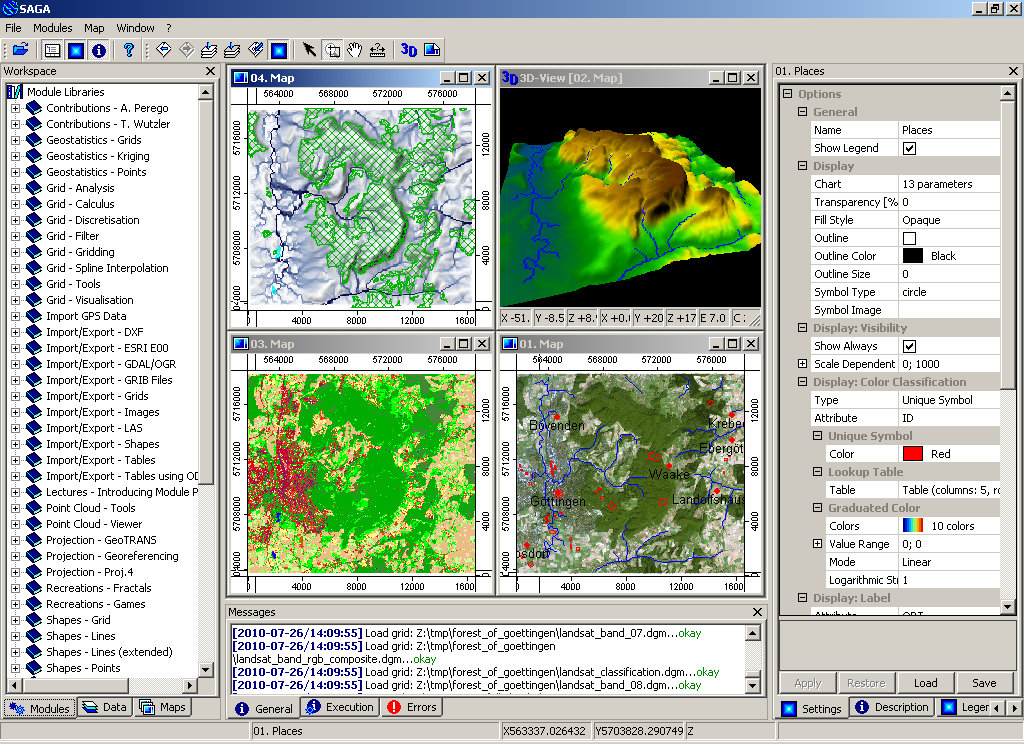
SAGA¶
Desktop GIS¶
SAGA (System for Automated Geoscientific Analyses) is an open source geographic information system (GIS) used for editing and analysing spatial data. It includes a large number of modules for the analysis of vector (point, line and polygon), table, grid and image data. Among others the package includes modules for geostatistics, image classification, projections, simulation of dynamic processes (hydrology, landscape development) and terrain analysis. The functionality can be accessed through a GUI, the command line or by using the C++ API.
SAGA has been in development since 2001, and the centre of SAGA development is located in the Institute of Geography at the University of Hamburg, with contributions from the growing world wide community.

Core Features¶
Access to a large number of scientific modules via the Graphical User Interface or the command line
Import/Export to different file formats
Reprojection/Resampling of data
Manipulation of vector data (merging/intersection/attributes)
Manipulation of point clouds from lidar data
Raster data: interpolation, cost analysis, …
Image analysis: filters, edge detection, cluster analysis, segmentation
Digital Terrain Analysis: generate geomorphometric indexes, channel networks, profiles, contour lines, …
Geostatistics: modules for variogram fitting and kriging
Fast user interface for managing and visualising data
3D visualisation
Straightforward C++ API for creating new modules
Scripting through command line, bindings for Python
SAGA can be accessed from the R statistical language through the RSAGA module
Details¶
Website: http://www.saga-gis.org
Licence: LGPL v2.1 (api); GPLv2 (GUI and modules)
Software Version: 7.3.0
Supported Platforms: Windows, Linux, FreeBSD
API Interfaces: C++, Python, R
Support: http://www.saga-gis.org
